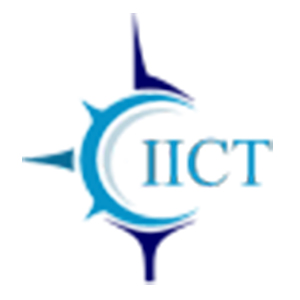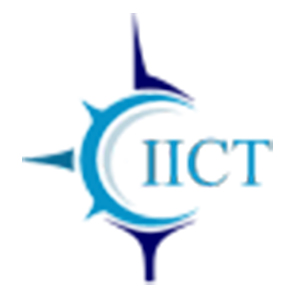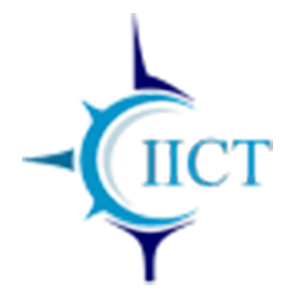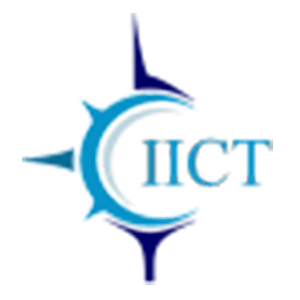SharePoint Course Syllabus
Module 1: Introduction to SharePoint 2013 – 3 hours
The class assumes that the student is seeing SharePoint for the very first time, so no prior SharePoint knowledge is necessary. Students will begin by learning what SharePoint is conceptual—and how information is accessed in SharePoint—by exploring an existing SharePoint site. During the first two days, students will build an identical SharePoint environment.
Questions that will be answered in this module include:
- What is SharePoint 2013?
- How do I navigate pages, sites, lists, and libraries in SharePoint 2013?
Module 2: Document Libraries – 3 hours
Most of the information in most organizations is stored in file shares and users’ “My Documents” folders on their local computer. Document Libraries in SharePoint build on the file share paradigm that most users are familiar with but add a number of significant improvements. In this module, students will learn the role that Document Libraries play in a SharePoint site by adding documents to a library, categorizing documents with folders and metadata, and creating custom views. Questions that will be answered in this module include:
- How do I upload single and multiple documents to SharePoint?
- How do I drag and drop documents into SharePoint?
- What is a Library? How do I create one?
- What is metadata and why is it different (and better) than folders?
- How do I create a column on a Library?
- How do I validate the information in a column?
- How do I create views of a library?
Module 3: Basic Document Management – 2 hours
In this module, students will build on what they have learned about Document Libraries and explore the document management functionality. Students will explore the features that allow SharePoint to automatically create and store both minor and major versions of documents such that previous versions can be viewed or restored if needed. Students will also use the content approval and check-in and check-out functionality, along with the Recycle Bin, to restore documents that have been deleted. Questions that will be answered in this module include:
- How do major and minor versioning work in SharePoint?
- How do I create draft versions of a document?
- How do I publish a document?
- How do document check-in and check-out work?
- How does the Approval process work?
- How can I restore deleted documents?
Module 4: Lists At its core– 3 hours
A SharePoint site consists of a number of lists. In this module, students will work with the out-of-the-box Links list that is natively part of a SharePoint team site. Students will also create their own custom lists with custom views, and learn how to create a list from data that is in an Excel spreadsheet. Questions that will be answered in this module include: ∙ What type of information is stored in a SharePoint List?
- What list templates are available?
- How do I customize the out-of-the-box lists with columns and views?
- How do I create a custom list?
- How do I edit items in a SharePoint list?
Module 5: Pages and Web Parts – 3 hours
SharePoint is more than just lists and libraries for storing information. It is a system for retrieving and working with information. Pages customize the display experience. In this module, students will create and edit their own Wiki Pages and Web Part Pages; they will use the Content Editor Web Part, Image Web Part, and Page Viewer Web Part to customize the content that appears on their pages. Questions that will be answered in this module include:
- What is a Wiki Page?
- How do I edit the content on a Wiki Page?
- How do I apply styles and layout to a Wiki Page?
- How do I add tables and pictures to a Wiki Page?
- What are Web Parts?
- How do I add Web Parts to a Wiki Page?
- How do I modify a Web Part?
- What are Web Part Pages?
- How do I add Web Parts to a Web Part Page?
- How do I edit content in a Web Part Page?
Module 6: Apps and the App Store – 2 hours
Lists and Libraries aren’t the only things users can add to their SharePoint sites. There are many other applications (or apps) available that can dynamically display information (such as news, weather, or RSS feeds), display information in your lists and libraries more creatively (such as with charts, graphs, or maps), manage your SharePoint sites, integrate with other web sites and social networks, or almost anything else you can imagine. Questions that will be answered in this module include:
- What is the SharePoint App Store?
- How do I find apps in the SharePoint Store?
- What are free apps and what are paid apps?
- How do I purchase apps from the SharePoint Store?
- How do I add an App Part to a Page?
Module 7: Creating and Managing Sites – 3 hours
SharePoint is a collection of web sites. Each site has a collection of lists and libraries that store the information end-users interact with and use. In this module, students will learn about the various site templates that are available and how to create their own sites and subsites. They will also learn how to manage their sites with the Site Settings page. Questions that will be answered in this module include:
- What is the site hierarchy?
- What do subsites inherit from their parent sites?
- How do I create a site?
- How do I change the navigation settings on a site?
- What site templates are available?
Module 8: Security Information – 3 hours
Security is critical! In SharePoint, much of this responsibility can be transferred to the site owner. In this module, students will learn how the SharePoint security model works and how to secure the content in their own SharePoint sites. Questions that will be answered in this module include:
- What are SharePoint Groups and Permission Levels?
- What is the Site Visitors group and how do Read-Only permissions work?
- What is the Site Members group and how does Contribute permissions work?
- What is the Site Owners group and how does Full Control permission work?
- What is a Site Collection Administrator and how is it different than a Site Owner?
- How can I create my own security groups?
- How does the ‘Share’ option work to change permissions in SharePoint 2013?
- How can I test permissions?
Module 9: Enterprise Search -– 3 hours
SharePoint sites can contain a variety of content. While a well-developed taxonomy will help users quickly find most information, many users will find Search to be the best way to quickly locate some content. In this module, students will learn how to utilize the powerful features of Enterprise Search. Questions answered in this module include:
- What are search refiners and how do I use them?
- What are Key Words?
- How do I preview items within my search results?
- How do I use the Content Search web part?
- Developing SharePoint 2010 workflows – 2 hours
- OOB Workflows
- Developing InfoPath 2010 with SharePoint Designer workflows
- Developing WF using visual studio 2010
- Advanced workflow scenarios
Module 11: Create web parts using C# – 5 hours
- How to create Visual web parts
Module 12: Basic server-side coding using SSOM– 6 hours
- Server-side coding using C# for creating, retrieving, updating deleting list items
Module 13: Create event receivers using C# – 4 hours
- Create event receivers using C#
Introduction to Client object model – 3 hours
- Understanding the client object model
- Implementing JavaScript
Sharepoint Training Course Highlights
1) Our Training Center batch sizes are generally very small size 3-5 members OR 1 to 1 also, so students receive direct, hands-on training from us.
2) 100% practical training only. It is not a slide show training program / theory class program.
3) At the end of this class, definitely you will refer your colleagues / friends / relatives for our training.
4) Conducting regularly online Sharepoint training for US peoples in all time zones (PST,CST,EST,HST,MST)
5) Installation of Softwares in your desktop / laptop will be done.
6) Will be provided self evaluation testing software, exam simulator, dumps & books with this training.
7) Continuous support is provided for any of your on-site problems. Assistance will be provided and you will be recommended to some of IT development firms.
Why Enroll with IICT for Sharepoint Training Course ?
1) Two days free trial - If candidate likes this course, these days are adjusted in his actual schedule.
2) Live Project Exposure of Fortune companies.
3) Training by Subject Matter experts from CMM Level 5 companies
4) Both Online and Classroom Training offered at Sharepoint
5) Our basic course worth more than the advanced course of other institutes/freelancers.
6) Free Interview preparations.
7) 100% free assistance for Sharepoint certifications.
8) Practical and Hands on Training for Sharepoint Course .
9) 100 % guarantee in succeeding the certification at affordable fees.
10) Also provide online training to students of foreign countries.
Sharepoint Training Batch Size
Regular Batch ( Morning, Day time & Evening)
Seats Available : 6 (maximum)
Weekend Training Batch( Saturday, Sunday & Holidays)
Seats Available : 8 (maximum)
Fast Track batch
Seats Available : 7 (maximum)
Sharepoint Training Duration
Regular Classes( Morning, Day time & Evening)
Duration : 6 weeks
Weekend Training Classes( Saturday, Sunday & Holidays)
Duration : 8 Weeks
Fast Track Training Program( 3+ hours classes daily)
Duration : within 4 weeks





